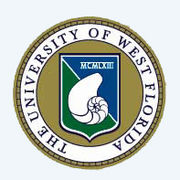
Dear Colleagues:
I sincerely regret that my schedule did not allow for my attendance at the May 9 Faculty Senate meeting. I chair the Florida Public Archeology Network Board and this statewide board only meets one time per year. We have had the meeting set for an entire year. Please forgive my absence. Since I can’t be present at the Faculty Senate meeting, I want to provide my response to your resolution on faculty and staff compensation.
I was on the UWF faculty for 28 years and I understand that faculty and staff salaries are a critical component in our success as a university. However, at UWF, wage actions must be bargained with the United Faculty of Florida, Police Benevolent Association, and American Federation of State County and Municipal Employees. Because of the requirement to bargain terms and conditions of employment only in noticed and official bargaining meetings, I cannot discuss specific terms, as they must be bargained collectively.
Please know that I appreciate your thoughtful suggestions and I take them very seriously. Our hard working faculty and staff are deserving of cost of living increases; they are deserving of making a competitive annual wage; they are deserving of being recognized and celebrated for the successes of this institution. Without our faculty, staff, and students there would be no UWF. Many of us have dedicated our life’s work here because we know the value of education, we see students transformed every day and we enjoy the collegial and nurturing environment. Yet we also have families and responsibilities that require competitive wages, I understand.
It is unfortunate that since the 2005-2006 fiscal year the Florida Legislature has not been able to provide recurring cost of living increases for university employees as it did in many previous years. All of us had come to rely on the recurring across the board increases the Florida Legislature provided ranging from 2% to 3.6% each year between 2000 through 2006 except for 2004-2005.
However, a byproduct of the economic recession is less funding for higher education in general in Florida. UWF’s state support was cut by $21.8 million in recurring dollars between 2007 through 2012. While UWF did receive budgetary enhancements in 2013 and 2014 they were earmarked for specific purposes such as the Florida Small Business Development Center, Complete Florida, or programs such as the Doctor of Physical Therapy, Doctor of Nurse Practice, and Mechanical Engineering. While funding for initiatives such as these makes UWF more robust, it does not enhance our ability to take generalized actions on wages.
UWF’s strategic plan calls for an investment in our valued faculty and staff by recruiting, retaining, supporting, and recognizing valued faculty and staff that aid UWF in meeting its mission. We have made strides in recognizing performance by investing $1.9 million in faculty compensation since 2011-12, with only $410,000 provided by the Florida Legislature. In total this has resulted in over 1,246 pay actions impacting over 400 individual faculty.
Likewise, we invested $1.5 million ($1.29m recurring) in additional staff compensation during this same time period. In total this has resulted in 1,153 pay actions impacting the compensation of over 630 individual staff members.
UWF has also funded a significant number of new faculty and staff lines to meet the demands of our growing institution. Coupled together the new lines and the aforementioned investments total approximately 87% of UWF’s investment dollars between 2011-2014. In fact, UWF’s number one investment from 2011-2014 has been in faculty and staff, for a total of approximately $8.7 million. Further, in the 2012-2013 budget year 75.3% of our Education and General annual operating budget was spent on faculty and staff compensation and benefits.
I do hope that the Florida Legislature will soon return to funding across the board wage increases for state workers. I appreciate that they were able to provide a modest increase of $1,000 or $1,400, respectively, during the 2013-2014 budget year.
However, today we are faced with a very new and unsettled environment in the Florida State University System. The most pressing issue for UWF is the focus on accountability. New recurring funds available to universities for the foreseeable future will be based on performance, which is currently measured by the 10 performance metrics set by the Florida Board of Governors. As our scores were the lowest in the state last year, they will hold back $3.8 million of our base budget for 2014-15. However, we can earn these dollars back over the course of the year by developing and implementing a metric improvement plan. In other words, we have to work hard just to stay even in 2014-15. In future years significant portions of our base funding are at stake. So, UWF must focus its limited resources on productivity and enhancements that will move the institution metrics forward to restore our base funds and compete for new funds.
We have the ability through our own hard work to bring in significant new resources to UWF through performance-based funding. In fact, performance based improvement is the primary pathway to new investment funding within the State University System. However, we must meet and exceed the metric thresholds set by the Board of Governors. First, we must improve retention and graduation rates and, then make incremental progress to improve the longitudinal metrics. While this will be difficult the opportunity is unprecedented. These achievements are only possible with the commitment and contributions of the faculty and staff. Thus, I am committed to rewarding our hard working faculty and staff as we move forward and meet the BOG metrics. The specific details of this model will require bargaining and I look forward to the dialogue.
Sincerely,
Judith A. Bense, Ph.D.
President



